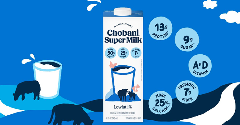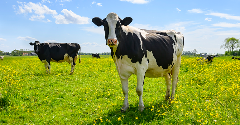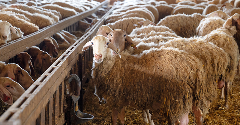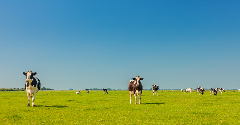News
Milk Specialties Global adds 10th facility
9 Sep 2016Human and animal nutrition company Milk Specialties Global has acquired the Saputo facility in Monroe, WI, adding to its nine certified manufacturing facilities spread across the Midwest and California.

Human and animal nutrition company Milk Specialties Global has acquired the Saputo facility in Monroe, WI.
Founded in 1949, Milk Specialties says it has experienced exceptional growth in human and animal nutrition, manufacturing whey and milk protein ingredients used primarily in the sports nutrition and functional food end-markets. This acquisition will, the company said, allow Milk Specialties to grow its whey protein ingredients through its advanced Ultrafiltration process, while enhancing the company’s commitment to ita strategic supply partners. “This investment will support our ongoing commitment to our valued whey suppliers to provide a consistent market for whey protein,” said Tom Benson, Senior Vice President of Strategic Sourcing & Risk Management of Milk Specialties. “Investing in an area that is soaked with a proud cheese making tradition will allow both our cheesemakers and Milk Specialties to continue to grow.”Currently, Milk Specialties has nine certified manufacturing facilities spread across the Midwest and California. The Monroe facility and its 14 employees will join the manufacturer as the tenth facility location.Related news

Danone removes NutriScore from products
20 Sep 2024
Following an algorithm update that gives some of its sweetened drinks a worse score, Danone has removed the front-of-pack label, NutriScore, from all of its products – putting profit before public health, say campaigners.
Read more
Chobani develops shelf-stable, prebiotic-enriched Super Milk
12 Sep 2024
Chobani has launched a prebiotic-enriched, shelf-stable, high-protein dairy milk to support people in disaster zones who need a nutritious drink that does not require refrigeration.
Read more
Tesco trials methane mitigation supplement for dairy cattle
5 Sep 2024
Tesco is trialing a methane-reducing feed supplement for one of its key UK dairy farms, sustainable UK milk producer Grosvenor Farms.
Read more
Sheep and goat plague: A new threat to Greece’s feta production
27 Aug 2024
A recent goat and sheep plague outbreak threatens feta production in Greece. The flagship product accounts for roughly 10% of the country’s food exports, but Greek authorities say there is no cause for concern.
Read more
Nestlé develops a new fat reduction method for dairy ingredients
26 Aug 2024
A Brazil-based Nestlé research and development team has developed a way to reduce the fat in milk powder by as much as 60%, without impacting the key characteristics that consumers enjoy.
Read more
Dutch court rules against plant-based butter brand ‘Roombeter’: Only dairy products allowed to use the word ‘cream’
26 Jul 2024
A Dutch court has ruled against Upfield’s plant-based butter, Roombeter, stating that its use of the word ‘room’ (cream) in the product name violates European regulations that protect dairy-related terms allowed for dairy products only.
Read more
How will Denmark’s 2030 carbon tax impact farming?
12 Jul 2024
Denmark has announced plans to implement Europe’s first carbon tax on agriculture from 2030, targetting the farming sector’s CO2 emissions. How will it be implemented and how have farmers reacted?
Read more
Sweden updates front-of-pack Keyhole labelling rules
11 Jul 2024
The Swedish Food Agency has announced updates to the voluntary Keyhole logo, used in four Nordic countries, following recommendations to improve nutrition labelling.
Read more
Consumers dislike faba beans’ sensory profile
3 Jun 2024
Consumers display low acceptance of faba beans, with sensory properties such as bitterness a core concern, a study suggests. However, for product varieties such as cocoa-free chocolate, this attribute could prove to be a benefit.
Read more
Food scientists uncover new way to preserve nutrient and flavour quality
29 May 2024
Researchers have developed a method that guarantees food safety for low-moisture products, such as dried milk, while maximising quality by retaining vitamins, minerals, and flavours, they say.
Read more